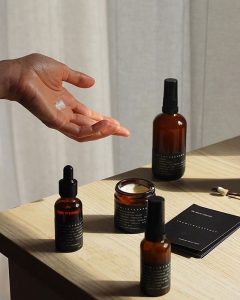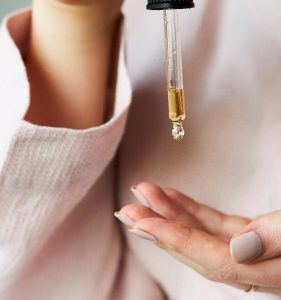Deep gratitude for our summer experiences becomes rich soil for our winter dreams to take root.
Many of us think that summer ends abruptly after Labor Day weekend [or whenever Starbucks announces that the Pumpkin Spiced Latte is back]. But fall doesn’t officially start until the sun crosses the Earth’s equator from north to south, in an event known as the autumnal equinox, or within Paganism, Mabon. This year, the equinox will occur on Saturday, September 22, at 9:54 p.m. EST. Spiritually speaking, this day signals much more than the start of sweater weather — the fall equinox is also viewed as the perfect opportunity to spend time outside, embrace changes in the natural world, and most importantly — practice gratitude.
The autumn equinox is a time to reconnect with a practice of gratitude and embrace everything in our lives that we’re truly grateful for. Acknowledging all that’s meaningful and important to us has a way of bursting open our hearts and brings with it a host of health benefits too.
In positive psychology research, gratitude is strongly and consistently associated with greater happiness. Gratitude helps us feel more positive emotions, relish good experiences, improve our health, deal with adversity, and build strong relationships. Researchers have also discovered that gratitude has some incredible benefits and that a daily practice can literally rewire the brain and body for health and joy.
In this regard, here are some simple ways to cultivate gratitude on a regular basis.
- Write a thank you note. We can make ourselves happier through nurturing relationships by writing thank you letters expressing our enjoyment and appreciation for those person/s and their impact on our lives. Send it, or better yet, deliver and read it in person if possible. Make a habit of sending at least one gratitude letter a month. And once in a while, write one to yourself too.
- Thank someone mentally. No time to write? It may help just to think about someone who has done something nice for you, and mentally thank the individual.
- Keep a gratitude journal. Make it a habit to write down or share with a loved one thoughts about the gifts you’ve received each day.
- Count your blessings. Pick a time every week to sit down and write about your blessings — reflecting on what went right or what you are grateful for. Sometimes it helps to pick a number — such as three to five things — that you will identify each week. As you write, be specific and think about the sensations you felt when something good happened to you.
- Meditate. Mindfulness meditation involves focusing on the present moment without judgment. Although people often focus on a mantra or phrase, it is also possible to focus on what you’re grateful for [the warmth of the sun, a pleasant sound, etc.].
Of course, it doesn’t matter if gratitude makes us healthier due to the power of positivity, or if the dopamine in our brains sets off a chain reaction that ignites the benefits of gratitude, every study conducted on the subject of gratitude has indisputable evidence that the practice benefits our bodies, minds and those around us.
It’s understandable that we may sometimes feel that we have less to be thankful for, but perhaps the reason why we feel that way is because we aren’t saying thank you enough. If that is the case, start small and with consistency, it won’t be long before you start experiencing the benefits of gratitude.
~ Photography by @feathersandstone
Resources:
Greater Good Science Centre
Harvard Health Publishing








